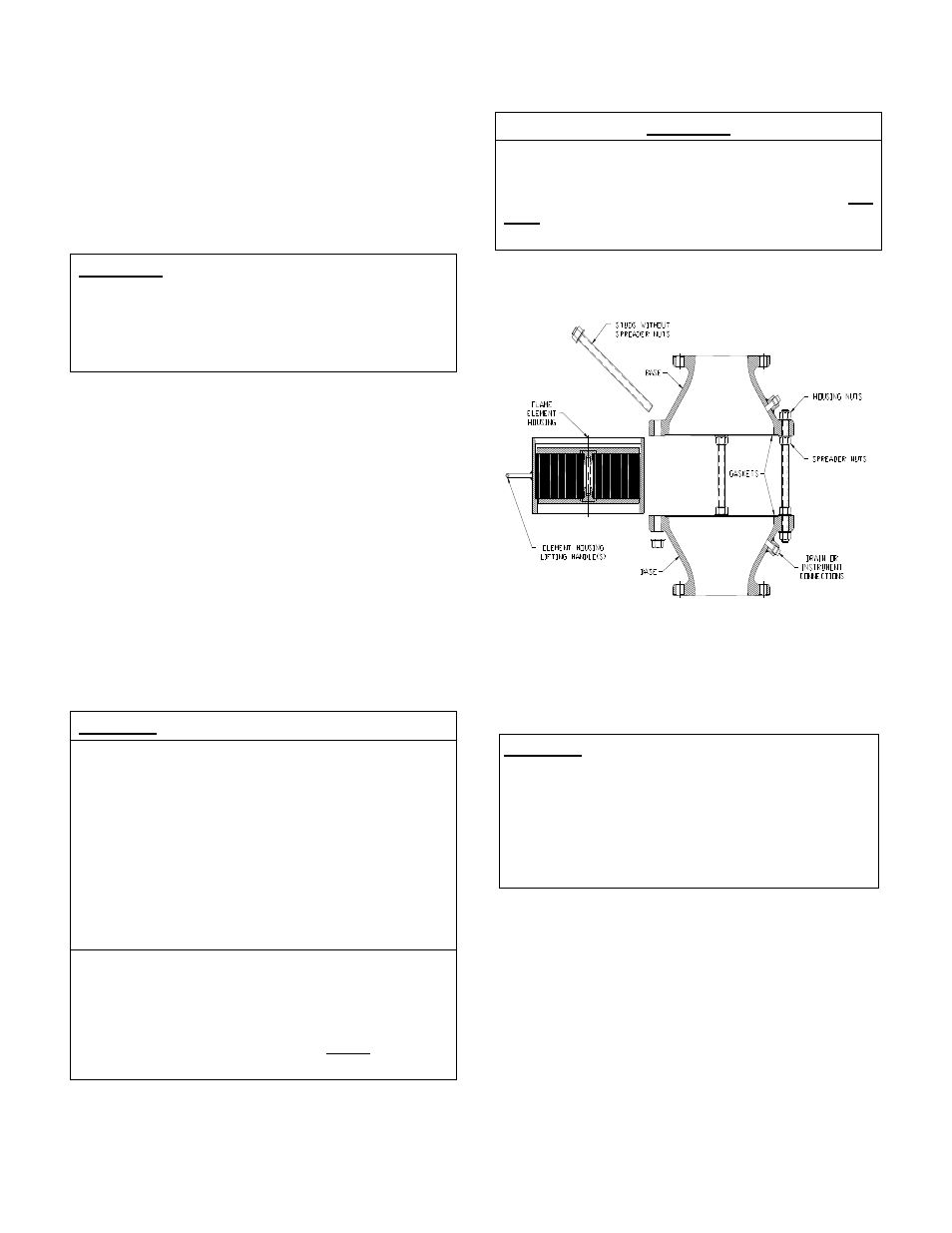Groth 7688 User Manual
Page 5

5
7. Torque all fasteners to half the value listed in
Table 1 in a staggered, alternating pattern to
provide an evenly compressed gasket joint.
8. Make up the final torque and check that no
further nut rotation occurs at the specified
torque value.
WARNING
After installation, all connections must be
inspected for vapor leakage. This may be
accomplished by static test, gas detector, or
"bubble" test using Snoop or similar liquid.
MAINTENANCE
For maximum operating efficiency the element
of a flame arrester must be inspected and
maintained at regular intervals. Frequency of
inspection should be based on the experience
gained in each application. Inspection of wetted
components is recommended at least once per
year or any time that one of the following
conditions occur:
• Excessive pressure drop is encountered at a
known flow rate.
• A flame front is detected.
Maintenance is accomplished by removing the
element assembly for inspection and cleaning or
replacement.
CAUTION
The connecting pipeline must be free of all
hazardous or flammable vapors before
inspection
procedures
begin.
Before
disassembling arrester consult Material
Safety Data Sheets (MSDS) for all products
that the arrester was exposed to in service.
The
components
should
be
cleaned
according
to
MSDS
procedure.
Take
appropriate safety precautions regarding eye
protection, skin contact & respiration.
The element cannot be removed in-line with
the integrated thermowell in place. Remove
the well completely by backing-out the
threaded connection in the housing. The well
must be re-installed in the same housing
with an appropriate thread sealant/lubricant.
1. When removing the element housing for
maintenance,
support
the
weight
by
attachment to the housing handles, or lifting
eyes, and proceed as follows.
WARNING
The lifting eyes on the element housing are
to be used for handling the housing only
during inspection and mainte-nance. DO
NOT use these eyes to lift the entire flame
arrester assembly.
2. Loosen the hex nuts and remove only those
studs or tie rods necessary to withdraw the
housing.
3. On the remaining studs, loosen the holding
nuts and use the spreader nuts to separate
the base halves from the housing. Use
spacer
blocks
or
spreader
tools,
if
necessary, to safely secure the base halves
so the housing is free for removal.
CAUTION
In a horizontal line, the flame bank assembly
should be supported before removing the
studs.
Use
structures
and
equipment
suitable for supporting the components
weight. The weight is noted on the drawing
attached to this manual.
4. Remove
the
housing
assembly
for
inspection.
The
flame
element
and
supporting grids shall be visually inspected
for damage or corrosion build-up from both
sides. If the flame element appears to be
damaged, it should be replaced immediately
with a new one.
5. Verify that the element openings are not
obstructed by viewing a light source through
the element passages. If the flame element
is dirty it can be cleaned by one of the
following methods:
